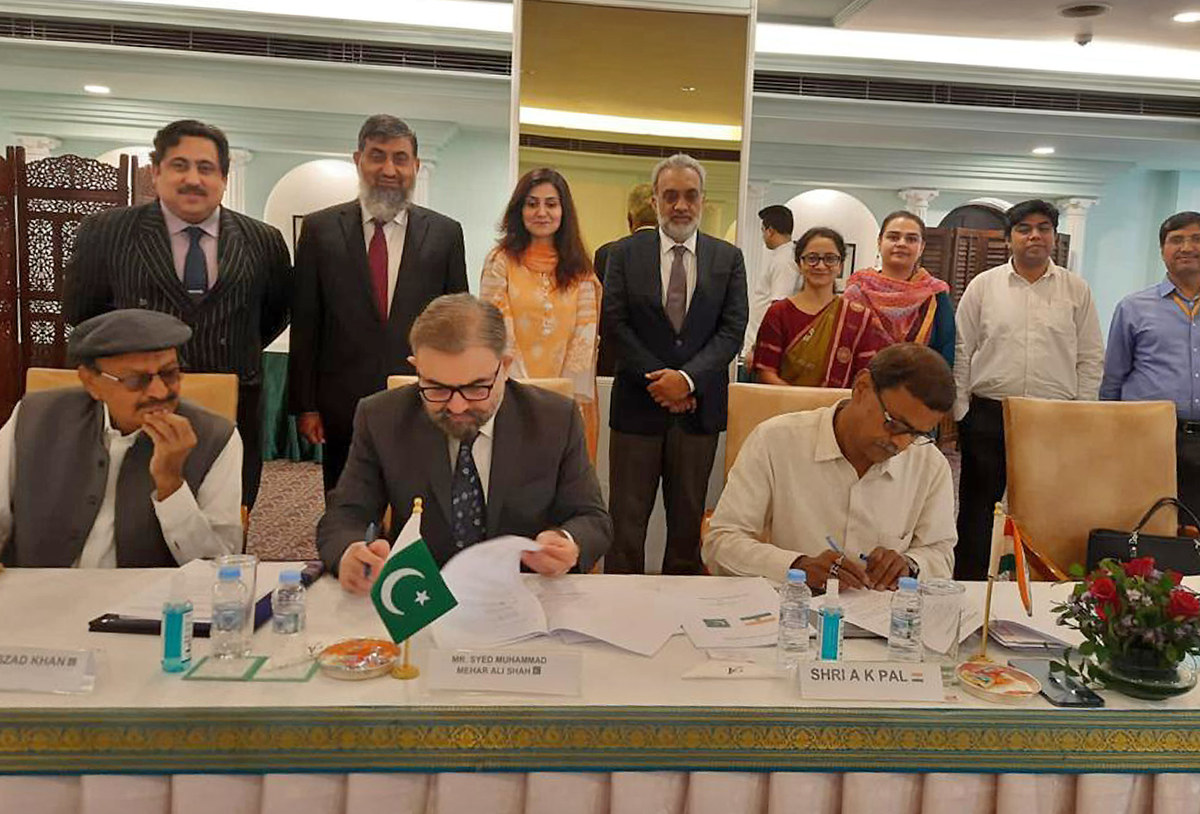ISLAMABAD: India has assured Islamabad of arranging inspections of its hydroelectric power projects and western rivers flowing into Pakistan after the coming flood season, the Pakistani foreign ministry said on Tuesday, as the two sides concluded a two-day meeting of the Permanent Indus Commission (PIC) in New Delhi.
The six-member Pakistani delegation was led by Pakistan’s Commissioner for Indus Waters Mehr Ali Shah, while the Indian side was headed by A K Pal. The two sides discussed a wide range of water-related issues, including the advance sharing of flood information, program of inspections and signing of the annual report of the PIC.
India has embarked on ambitious irrigation plans and the construction of many upstream dams in recent years, saying its use of water is strictly in line with the Indus Water Treaty (IWT) signed between the two countries in 1960. Pakistan, however, opposes some of these projects saying they violate the World Bank-mediated agreement on the sharing of Indus waters, with 80 percent of Pakistani agriculture dependent on it.
As per the provisions of the treaty between the two nuclear-armed neighbors, the two commissioners are required to meet at least once a year, alternately in Pakistan and India.
“Indian side assured to arrange tours/inspections after the coming flood season [June to September],” the Pakistani foreign ministry said in a statement. “India side also assured that Pakistan’s outstanding objections would be discussed in the next meeting as the Indian side is still in the process of examining the details.”

Members of Pakistan and Indian water commission sign annual report of the Permanent Indus Commission (PIC) in New Delhi, India, on May 31, 2022. (@PakinIndia/Twitter)
Pakistan also highlighted and sought a response to its objections on India’s hydroelectric projects, including the 1,000 megawatts Pakal Dul hydropower project, on Chenab River.
“The Indian side was also urged to communicate advance flood-flow information as per the provisions of the Treaty and the practice in vogue since 1989 until 2018,” the Pakistani foreign ministry added.
India’s external affairs ministry said he two sides finalized and signed the annual PIC report for the year ending on March 31. “It was agreed to hold the next meeting of the PIC in Pakistan on mutually convenient dates,” it added.
The Indus Water Treaty between Pakistan and India was brokered by the World Bank and signed in Karachi in 1960. The treaty gives control over the waters of the three eastern rivers — the Beas, Ravi and Sutlej — to India, while control over the waters of the three western rivers — the Indus, Chenab and Jhelum — lies with Pakistan.
Under the treaty, both countries can approach the World Bank for arbitration in case of disputes over the use of water resources. Pakistan approached the World Bank in August 2016 to constitute a court of arbitration over two disputed Indian projects: the 330 megawatts Kishanganga and 850 megawatts Ratle hydropower projects.
The World Bank has not yet set up the court as India has sought the appointment of a neutral expert to resolve the conflict.

















